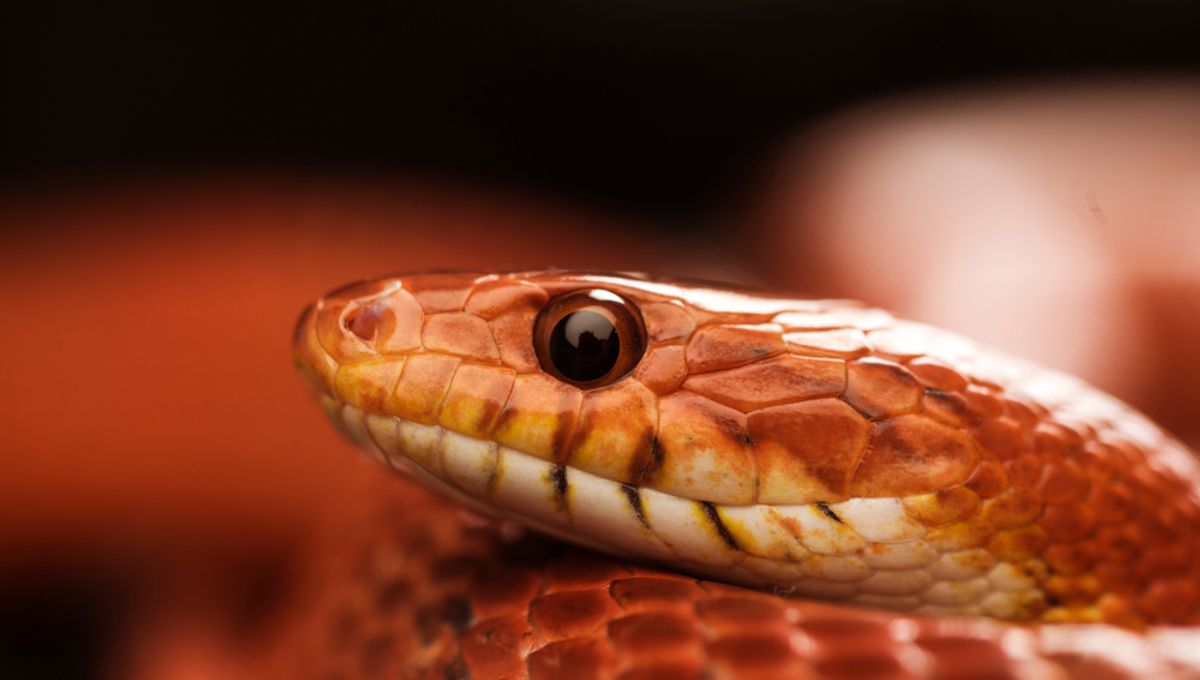
A man in China has been caught trying to smuggle more than 100 live snakes into the country inside his pants – bringing new meaning both to the term “trouser snake” and also the term “holy cow dude, seriously, why would you EVER DO that?”
The traveler was intercepted by customs agents in Futian Port, on the boundary between Hong Kong and Shenzhen, China.
“Upon inspection, customs officers discovered that the pockets of the trousers the passenger was wearing were packed with six canvas drawstring bags and sealed with tape,” reported a statement from China’s customs agency this week.
“Once opened, each bag was found to contain living snakes in all kinds of shapes, sizes and colors,” it added.
While the transportation method is, let’s face it, absolutely bananas, the smuggler did at least seem to have some sense when it comes to keeping predatory reptiles next to your nether regions: while only a handful of the snakes have so far been identified, none appear to be venomous. Many were non-native to the region, however, including milk snakes, western hognose snakes, corn snakes, Texas rat snakes, and bullsnakes.
It’s a noteworthy example of what is, sadly, an all-too-common problem: the illegal wildlife trade. Despite international efforts to curb the smuggling and sale of exotic and endangered animals, the industry is currently worth a huge $20 billion per year, and increasingly linked to organized crime, armed violence, and of course, environmental damage on a truly massive scale.
“The illegal wildlife trade is the fourth biggest illegal activity worldwide, behind only arms, drugs and human trafficking,” notes ZSL London Zoo. “[It] leaves a trail of destruction which is wiping out species and destroying people’s lives.”
“For every baby chimp that becomes a victim of illegal trade, 10 chimps are killed in the process,” it adds.
The trade has been of particular concern in China, where demand for illegal wildlife is devastatingly high. Animals are often smuggled in for use in traditional Chinese medicine, as well as for pets and investments – to take just one species as an example, the country saw at least 192 incidents of pangolin smuggling between 2010 and 2021, amounting to at least 74,500 dead pangolins, the Environmental Investigation Agency reported last year.
That said, China has attempted to curb its reputation as an epicenter for the animal smuggling in recent years. In February 2020, the country’s top legislature announced a decision to “thoroughly ban the illegal trading of wildlife and eliminate the consumption of wild animals to safeguard people’s lives and health.” Those species that were already illegal to trade had their protections beefed up, with the Chinese government suggesting that punishments for those caught smuggling illegal animals would receive harsher punishments than previously – potentially even including the death penalty.
While opinions may vary on the severity of the punishment, the fact that such a high-demand country is cracking down on animal trafficking is welcome news to both animal lovers and, presumably, around 100 newly freed snakes.
“Those who break the rules will be […] held liable in accordance with the law,” the statement from the customs agency warned. While no news has been reported as to whether the smuggler was arrested, we wouldn’t like to be in his shoes right now.
Or, for that matter, his pants.
Source Link: Man Caught In China Smuggling Over 100 Live Snakes Inside His Pants